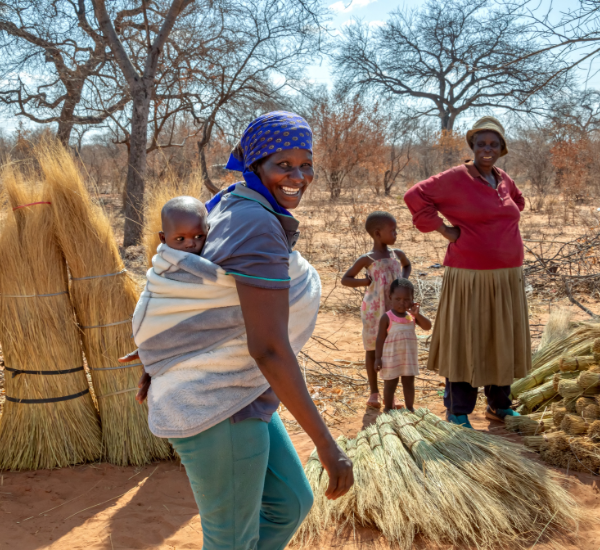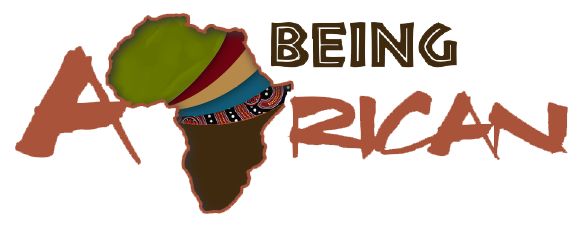
Neighborly Practices: Botswana (Setswana) Culture
BEING AFRICAN- AFRICAN CULTURE EXPLAINED
Neighborly Practices: Botswana Culture (Setswana)
African societies have always lived together in community groups, and the people of Botswana are no exception in this regard. This ‘community’ set up of the Batswana communities has inculcated a sense of togetherness and interdependence from time to time (if not always).
Therefore, one would understand that there will be an inevitable need to have good, cordial relations within the communities for stability, tranquility, and general societal orderliness. This write-up demonstrates how the Batswana promote good neighborly practices by looking at the community activities meant to facilitate good neighborliness. We will also look at proverbs and phrases intended to encourage the same.
ACTIVITIES
-
- Motshelo: literally translated, the term Motshelo comes from the root word ‘tshela,’ which means pouring something (liquid) into a container. In the context the Batswana use the word motshelo, the word means coming together as a community to contribute something (especially labor) to a chosen neighbor who might be struggling with chores/tasks or doing something labor-intensive. The whole idea of motshelo is for the entire community to gather at one person’s homestead and help with whatever they might need help with. Motshelo can take the following forms:
- Ploughing & Weeding the fields: As traditional agriculturalists, the Batswana have their ploughing season starting in October and stretching to March/April when they harvest their crops from the fields (note that the Batswana use dryland farming; they wait for the rainy season). The standard procedure is that the chief (kgosi) calls a meeting to declare the ploughing season (letsema in the vernacular). Then the community returns to their lands to start ploughing. So, due to the absence of machinery or a lack thereof, the Batswana also employ the use of animal-drawn ploughs, which are labor-intensive. On the other hand, there are those members of the society who, for various reasons, cannot plough their fields without help from the community. Motshelo is very important in such situations. Upon declaration of the ploughing season, the community will plough the fields in turns collectively as a community. For example, on the first day, all community members will be tilling Mr. X’s field, the next day somewhere else, and so on. Any member who does not participate will not receive assistance in their field as well. The same routine will continue even during the times of weeding the fields. Note, however, that during these activities, the host is tasked with cooking some of the workers’ food and providing some traditional beer. Everybody brings their small portion of sorghum and beans to contribute to the day’s feast.
- Thatch renewal: The Batswana, as previously mentioned lived in, and built round thatched mud huts that needed maintenance occasionally. When a family realizes it is time to renew their thatch, the parents will inform their neighbors of their intention or need to restore their roof. The ‘women’ in the community will join the lady of the house in collecting grass in the bushes. The men will join the women later with their cattle/donkey-drawn carriages to collect the grass, and all community members will repair the roof. It is interesting to note that every community member knows their role. Roles usually include throwing up the grass bundles, replacing old rafters, cooking for the working party, and cleaning afterward; the concept of specialization and division of labor.
- Funerals & Weddings: this concept of motshelo extends to almost all community activities that the Batswana are involved in, including funerals and weddings. When one community member gets married or passes on, the entire wedding or funeral is planned and implemented by the community as a unit. The norm, however, is that the community only helps a family that also participates in such activities. Those who do not contribute or participate will have to do it independently as the Batswana believe that ‘letsogo le tlhapisa le lengwe,’ which means one hand washes the other. No hand can wash itself.
- Money: This form of motshelo is relatively new amongst the Batswana. It is basically where members of a community contribute to a fund monthly. This contribution practice allows each member to save a certain amount of money to help them build a house or buy building materials. In some cases, the community will purchase building materials for each member in turn, which has helped ‘conceal’ the poverty status of community members.
- Motshelo: literally translated, the term Motshelo comes from the root word ‘tshela,’ which means pouring something (liquid) into a container. In the context the Batswana use the word motshelo, the word means coming together as a community to contribute something (especially labor) to a chosen neighbor who might be struggling with chores/tasks or doing something labor-intensive. The whole idea of motshelo is for the entire community to gather at one person’s homestead and help with whatever they might need help with. Motshelo can take the following forms:
All in all, the idea behind the concept of motshelo is to make life easy for neighbors. More importantly, it is meant to show and demonstrate societal values of empathy, unity, and a sense of belonging.
-
- Lesotla (plural: Masotla): As already outlined, the Batswana depend on agriculture for food and other needs. During years of scarcity or drought, the country and its communities have to endure difficult periods of prolonged droughts (coupled with the fact that Botswana is semi-arid in climate). So, therefore, to guard against this, the chiefs used to allocate ‘community ploughing fields,’ which belong to no one in particular but rather to the entire village or community. Members of the community were responsible for ploughing and planting these fields. They would then store the proceeds or harvest in ‘community silos’ for use in times of drought. Note, however, that they would occasionally allocate to the elderly or disabled even when there is no drought: the elderly here refers to those elders who, for different reasons, do not have anybody to provide for. Lesotla is one of the many activities that the Batswana carried out to promote good neighborliness and protect the integrity and lives of the disabled or have-nots in the community. Lastly, if there is not enough space to allocate these fields, the community will use the chief’s ploughing field for purposes of lesotla.
- Mafisa: if there is anything the Batswana can’t do without, it is cattle farming. The wealth of any family or person is measured based on the size of their herd. So for the Batswana, poor people are those that do not own any cattle. Not having cattle also means one has no milk for tea or to make sour milk which is used as a relish for sorghum or maize meal. To guard against loss of integrity and respect for their poor, the Batswana have mafisa. Mafisa refers to cows that one person ‘loans out’ to another person who doesn’t have any cows so that they can use them to make ends meet (remember; cows and oxen are used to carry loads, fetch water at the river as well as a plough).In most cases, the ‘loan’ would end with the loanee having his own herd of cattle because the lender would give him at least two female calves when it’s time to take back his cows. These calves are not just given out of pity, but they are seen as a reward to the loanee ‘for taking care of my cows.’ Such a gesture shows you that the element of empathy and pity have been values upheld by the Batswana to promote good neighborly practices.
PROVERBS AND PHRASES: People’s proverbs and phrases carry very deep-rooted meanings and signify values and principles they uphold. For good neighborly practices, the Batswana have the following sayings and phrases, which will solidify and support some of the activities discussed above:
- Matlo go sha mabapi: Literally translated, this Tswana proverb translates to: ‘when a house catches fire, it can affect or burn those next to it.’ From this saying, the Batswana imply that one must take their neighbor’s problems and challenges as their own because whatever affects your neighbor may affect you next, even after a long time- and when it happens, you will need your neighbor to help materially or to offer a shoulder to cry upon. This proverb encourages empathy as well as living together as a unit/family in the community.
- Moroto wa e esi ga o ele: another sign of Batswana’s relationship with cattle. This proverb translates to; ‘a single cow’s or bull’s urine cannot flow on the ground; it quickly gets ‘swallowed by the earth/soil.’ It is clear from this that the Batswana have always valued cooperation and working together (in communities) to achieve anything significant. So, in this case, people are encouraged to work together in unity and support one another for progress and tranquility in society.
- Di nwang dia dibosana: This is another proverb derived from the relationship with cattle. This proverb implies that when drinking at the river or waterhole, those that drink together must give each other a chance or take turns. This proverb was primarily meant to demonstrate their dislike for selfish behavior. A good neighbor is, therefore, one that doesn’t mind sharing and affording others opportunities.
- Kgetsi ya tsie e kgonwa ke go tshwaraganelwa: Translated, this means that a heavy load becomes lighter when carried by a group of people. It, therefore, encourages cooperation and support for one another in the community. As mentioned earlier, another proverb similar to this one encourages collaboration: Letsogo le tlhapisa le lengwe ‘a hand needs another to become clean.
- Mabogo dinku a thebana: this proverb carries the same essence and connotations as the former. So this proverb means ‘a hand needs another to be scratched or massaged’ In the western world, this is the equivalent to ‘scratch my back so that I could scratch yours.’
Finally, from all the concepts discussed above, one thing comes out clear; the Batswana have long valued good neighborly practices, and this has probably had a huge, vital role to play in turning the country Botswana into one of the most tribally and politically stable countries not only in Africa but the world over.
